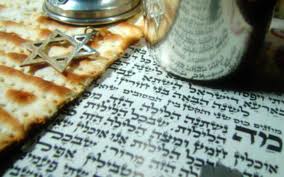“Then Moses said to the people, “Commemorate this day, the day you came out of Egypt, out of the land of slavery, because the Lord brought you out of it with a mighty hand.” Exodus 13:3
In our day-to-day lives, the word passover is broken up into two words that are typically associated with events like being “passed over” for a promotion, or “passing over” a certain stage in our lives. For many Jews and Christians, these words are cemented together to describe one of the most significant events in the Old Testament.
The Passover holiday commemorates the liberation of the Israelites from Egyptian bondage by God. Prior to being freed from their captivity, the Old Testament records that the Israelite people suffered horrible abuses from the Egyptian pharaoh’s, leading to an edict to throw all of the male Israelite babies in the river. The Old Testament Book of Genesis is the first time readers learn of the Israelites enslavement by the Egyptians.
Genesis 15 records a covenant made by God with Abraham where He shares details of this future enslavement:
“Then the Lord said to him, ‘Know for certain that for four hundred years your descendants will be strangers in a country not their own and that they will be enslaved and mistreated there. But I will punish the nation they serve as slaves, and afterward they will come out with great possessions.” Genesis 15:13-14
In the Book of Exodus, God chooses Moses to be the vessel He uses to fulfill this covenant promise to Abraham. Moses (with the help of his brother Aaron) approaches Egypt’s pharaoh with God’s desire that he free the Israelite’s from slavery. God struck Egypt with a total of 10 plagues, the first 9 of which did nothing to convince the pharaoh to free the Israelite people from their captivity. God hardened pharaoh’s heart and for the tenth plague vowed to kill every firstborn child in Egypt. Enter the Passover.
To ensure that death would pass over their homes, the Israelite people were instructed to put the blood of a male, unblemished lamb on their doorposts. The death of Egypt’s firstborn children is what led the pharaoh to free the Israelite people, sending them off to the land of Canaan. A decision he’d later reverse, sending the Egyptian army out to stop the Israelite people from entering into Canaan, resulting in the Egyptian army being swallowed up by the Red Sea (Exodus 14:21-28). After some hemming and hawing, and several twists and turns, the Israelite eventually enter into the land promised to them by God.
Today, the Passover Seder serves as a central ritual in the Passover celebration. This carefully ordered dinner is a time for those in attendance to relay the story of the Israelites exodus from Egypt, to drink 4 cups of wine recalling the 4 times the Israelites were described as being redeemed, to eat foods such as Matzah, and above all, to celebrate the freedom God promised and fulfilled through His covenant with Abraham. Passover is a time for believers to celebrate the power, strength, and faithfulness of a covenant-making, and covenant-keeping God.
Although some Christians participate in Passover Seder meals and activities, unlike the Jewish celebrant, Christians believe that the longed for Messiah, the unblemished Lamb of God, the only One that can reconcile man to God, God in the Flesh, is revealed in the New Testament. For the Christian, the shed blood of Jesus Christ on the cross at Calvary is the only sacrifice that will lead God to “pass over, forgive,” sins to all whom repent and place their trust and faith solely on the work of Jesus Christ on the cross.
In spite of this MAJOR fork in the road between Jews and Christians, on some level, I think Passover can still serve as a time for these groups to celebrate and praise the covenant nature of God they seek for deliverance.
What is the most significant aspect of Passover for you?
Happy Passover!



